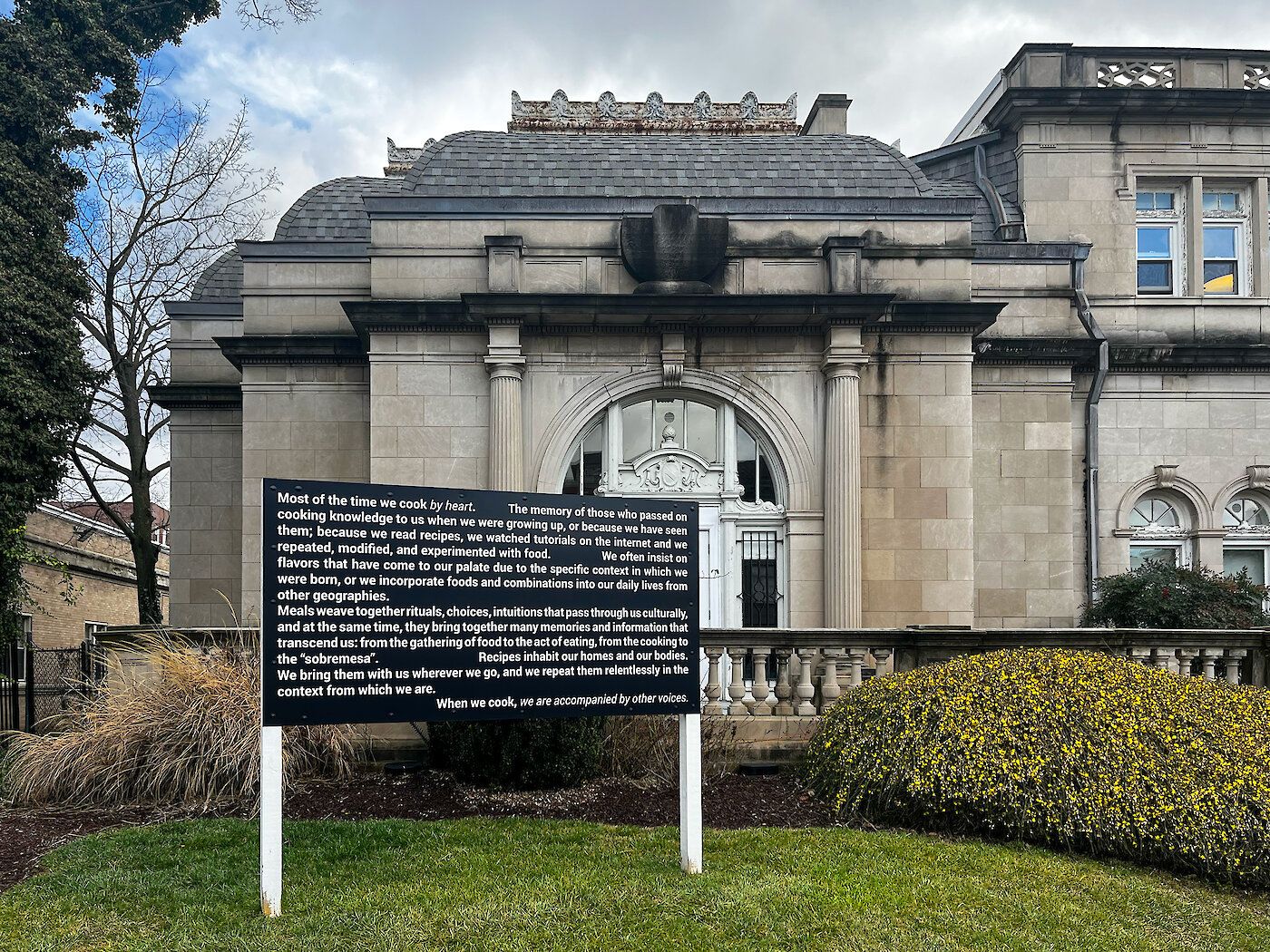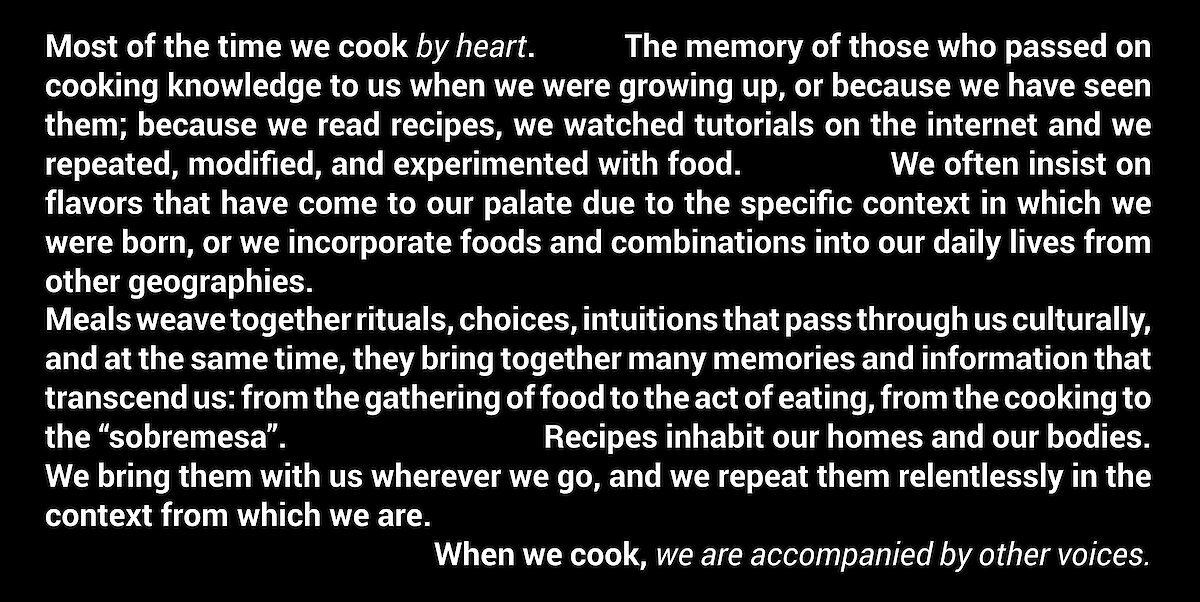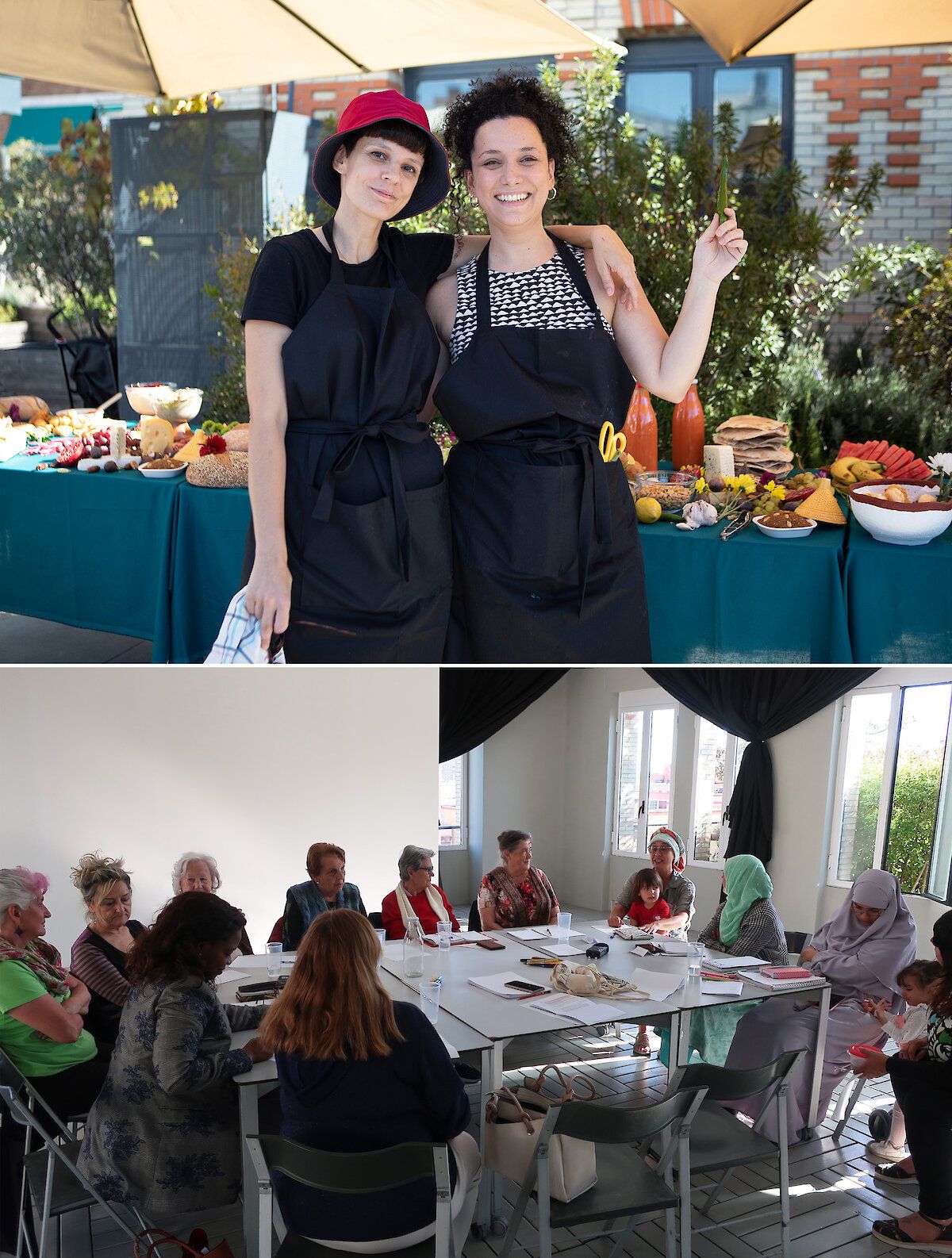Estefanía Santiago & Menjunje collective
17 / 17

We are accompanied by other voices
The literal translation of the Spanish word Sobremesa into English refers to objects designed to be placed on a table, or to tablecloths and coverings that cover a table. However, it is the intangible meaning that has a widespread use in Spanish: it is the moment when, after sharing a meal, people stay talking before clearing the table.
We could say that the sobremesa is over when nothing and no one is left on the table. It is a period of time defined by the absence of haste, the relationships created from the affection established in the act of sharing food, the calm conversation that accompanies the presence, gestures and voices of those who sit at that table.
Sobremesa is the end point of a nourishing and collective process that begins with the cultivation and harvesting and in which, finally, the senses of dialogue and community are reinforced. That is why it serves as a metaphor for the meaning that we understand that the 2030 Agenda wants to provide in its last objective: the common alliance. A union that seeks the achievement of some goals and that, nevertheless, closes with a series of practical points for the implementation of measures for the growth and development of trade and technology. In this way, the coherence between statements, policies and regulations is limited to the treatment of debt and the technological gap, as imbalance factors between the different nations in order to reach the idyllic panorama of the agenda itself.
Could there be other ways to outline the collaborations? Of thinking about common purposes?
The work developed by artist Estefanía Santiago and the Menjunje collective, with the subtitle Practices to build a common language, has been developed in the Madrid neighborhood of Lavapiés, setting out a methodology and action for research, analysis and construction from an established present and context, that is, aware of its situation and implications.
Menjunje defines the medical, cosmetic or food mixture made with food combined in a confusing way. An intuitive and healing mescolanza. The group work was carried out in two stages: an initial laboratory research, reflection and creation clinic, with female residents of the neighborhood with various backgrounds (Senegal, Morocco, Bangladesh, Brazil, United States or Spain, among others). Together they made a mapping of food and recipes from three angles: the hidden stories, the tools for collective eating and the kitchen music. In a second stage they carried out El Festín (The Feast), a gathering of celebration and collective food where the research was presented. Food, an indispensable element for existence, is also indispensable for coexistence, to forge traditions and identities.
As described by Estefanía Santiago describes, it is “a key element in the global logics of what is multicultural, cosmopolitan. Food allows us to trace the persistence of colonial, imperialist and nationalist logics. At the same time, through food and the techniques to obtain it, utensils, recipes and rituals, knowledge, memories and anecdotes that exercise new forms of relationship and belonging are manifested. Food, undoubtedly, is a meeting point to build a common language from which to sabotage the logics of power.”
Their encounters echo memories of different times and places, various affections, based on doing things together. As they remind us in the poster with which we close the project Not only what, but also how, in Spanish they cook “by heart,” which in English is “by heart”. A game of translations that reaffirms the idea of making from the affective, making from the collective memory, that concerns ecosystems and not only economies, that unites us with the company of other voices for the imagination of new possibilities for the future, exceeding the normative reductionism that is associated with an idea of growth that is only developmental.

